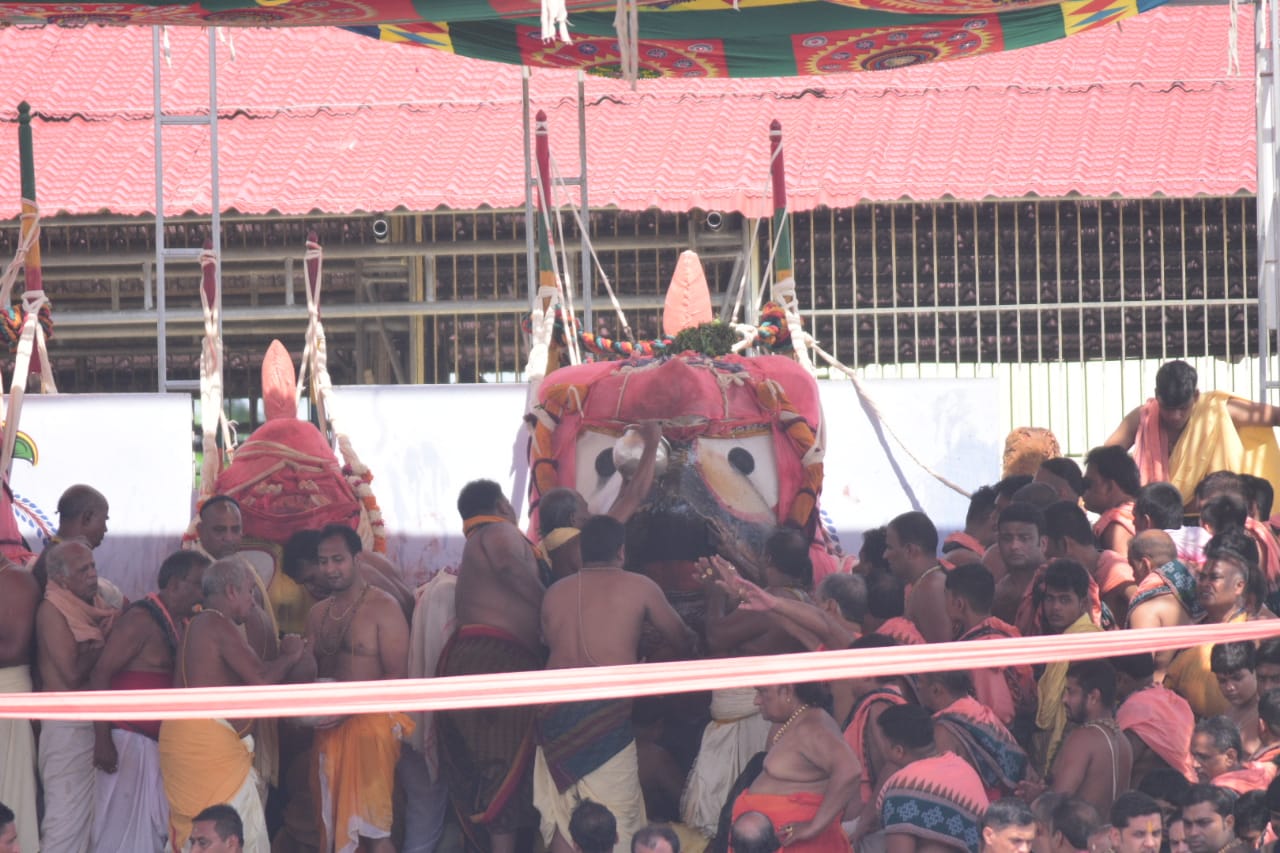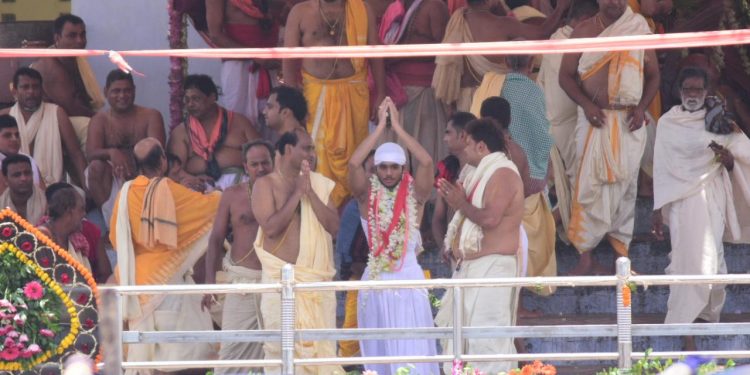Puri: For the first time in living memory, Lord Jagannaths annual ‘Snana Purnima’ rituals were held at the 12th century shrine in this seaside pilgrim town Friday in the absence of devotees due to the lockdown curbs but priests did not wear masks and disregarded social distancing norms.
Though a limited number of servitors were required to perform the proceedings, a video showed a large congregation in violation of social distancing precaution needed to ward off the COVID-19 infection.
Many servitors were seen milling around the idols of the presiding deities.
The sibling deities were carried out of the main temple at about 1:40 a.m. in a procession by select servitors who had to undergo the test for the coronavirus before they were allowed to participate in the rituals, a prelude to the famous annual Ratha Jatra, which attracts lakhs of devotees from across the world in normal times.
Lord Balabhadra, Devi Subhadra, Lord Jagannath and Lord Sudarshan were seated at the bathing altar inside the temple premises where 108 pitchers of scented water was poured on them amid chanting of slokas. The altar is called Snana Bedi.
The water was fetched from a well called suna kua (golden well) by Garabadu servitors and poured on the deities. While 33 pitchers of water was poured on Lord Balabhadra, it was 35 for Lord Jagannath, 22 for Devi Subhadra and 18 for Lord Sudarshan.
However, mass chanting of Hari Bol by devotees was sorely missed.
While restrictions on large gatherings under Section 144 of CrPC is in force since 10 pm Thursday and will continue till 2 pm Saturday in the town, security has beentightened in order to prevent people from gathering near the shrine, Puri district Collector Balwant Singh said.

It was decided to celebrate the ‘Snana Purnima’ festival without devotees in the presence of a limited number of servitors in order to ensure strict implementation of Covid-19 guidelines, he had said.
DIG of Police (Central Range) Asish Singh said altogether 38 platoons of police force, each consisting of around 33 personnel, were deployed o ensure smooth conduct of the rituals and prevent any untoward incident.
Devotees were, however, given an opportunity to have a glimpse of the rituals through live telecast on television.
‘Snana Purnima is observed every year on the full-moon day in the month of Jyestha of the Hindu calendar, considered the birthday of Lord Jagannath.
After the birth of the Lord, He is bathed during a ritual called Snan Purnima, one of the major rituals before the annual car festival or Rath Jatra.
Legend has it that King Indradyumna, who installed the wooden deities in the temple, had introduced the bathing rituals. After the grand bath, the deities are attired in Hati Besha, the elephant attire, fulfilling the desire of the devotees of Lord Ganesha.
PNN and Agencies






































